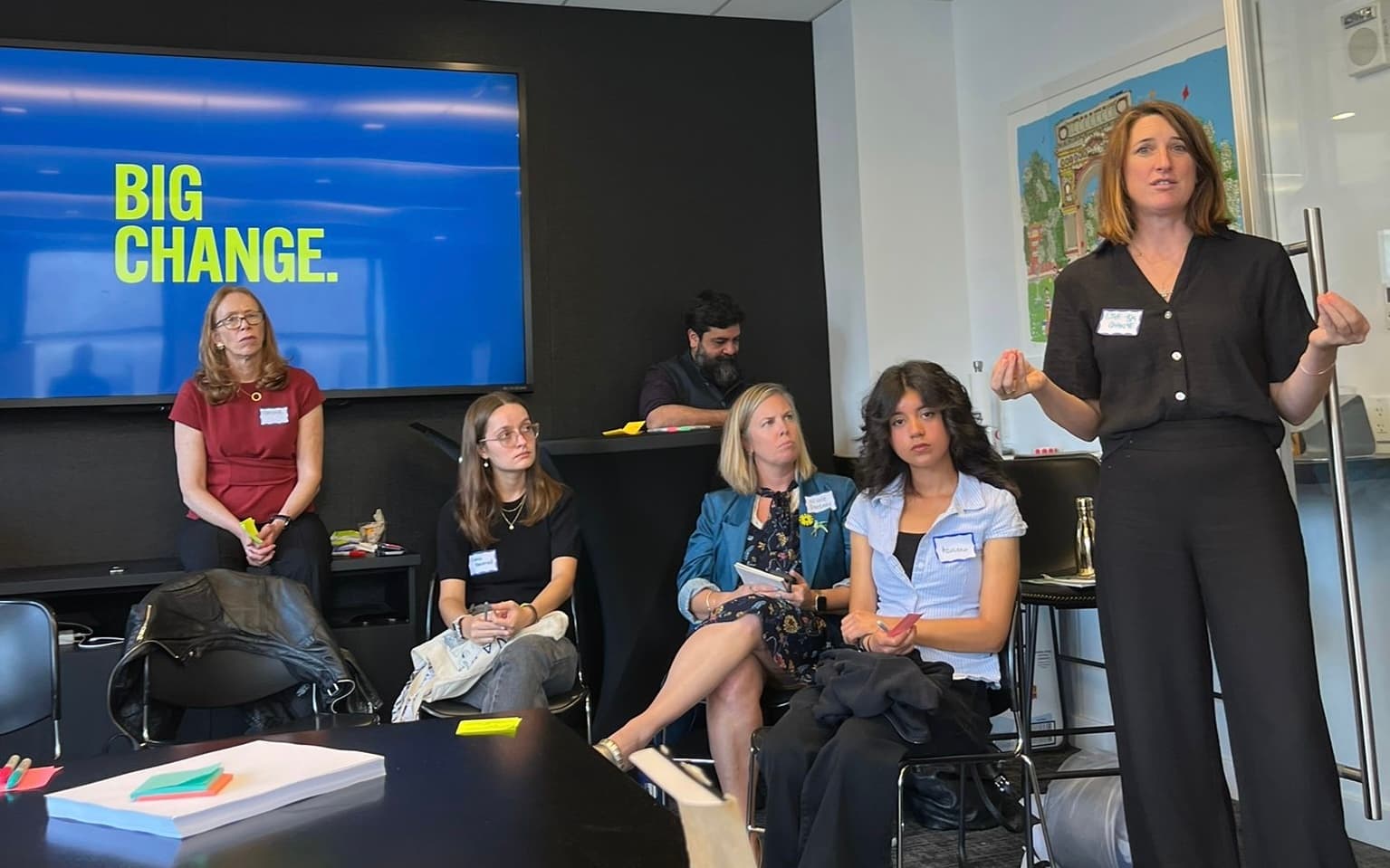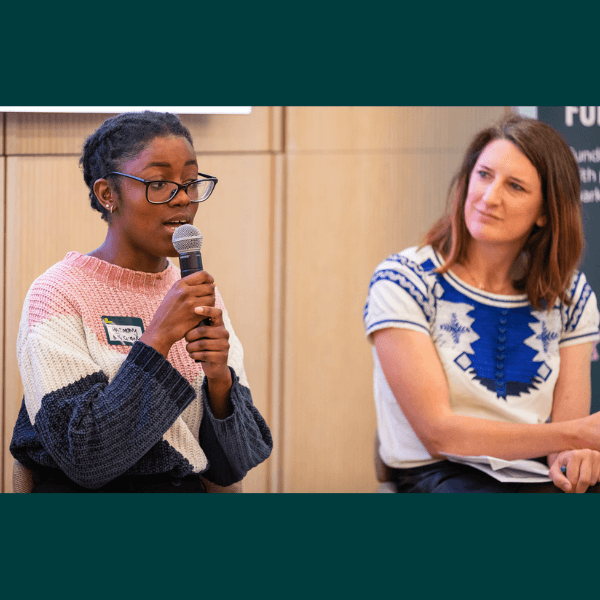
5 Ways to Create Big Change in Education
Reflections from the Salzburg Global Seminar, by Dame Alison Peacock, CEO Chartered College of Teaching and Big Change Trustee, and Fran Wilby, National Lead for Programmes and Partnerships at Rethinking Assessment, Big Change Project Partner.
In a rapidly changing world it is vital we share insights and collaborate with organisations focused on young people thriving.
Our five reflections focus on the areas we must work together on to create the change we know is needed.

At ‘The Future of Teaching’ seminar we gathered with participants from across the globe to explore how education systems can adapt to the challenges of tomorrow. The conversations highlighted the universal nature of the challenges education systems face: teacher recruitment and retention, embracing AI, moving away from traditional models of assessment, and more.
1 - Motivating learners and teachers
We can all agree that schools should be joyful spaces where students thrive, and parents feel welcomed and involved, yet many schools struggle to create environments where students feel excited about learning. And we are witnessing a worrying rise in young people voting with their feet and simply not coming into school. Instead of compliance-driven education, we need systems that challenge and inspire learners, encouraging them to explore their potential. We want to focus on ways for children to flourish, create learning opportunities that are collaborative through play and team work, and create spaces that are psychologically safe. Equally important is how we better support educators, and avoid promoting the expert teachers out of the classroom. The Chartered College of Teaching are focussing on ways to ensure expert teachers are rewarded for their expertise, encouraged to lead curriculum development and innovation, and drive systemic change.
2 - Embracing the role of AI in education
AI presents transformative opportunities for education but also significant challenges. Discussions in Salzburg emphasised the need to use AI as a tool rather than allowing it to dictate educational practices. When integrated thoughtfully, AI has the potential to enhance classroom management, build confidence in trainee teachers through developing virtual scenarios for them to practice, and enable adaptive assessment tailored to individual learners. Issues of access, equity, and data ownership are paramount, and ethical considerations must guide this integration. AI experts like Fernando Valenzuela, CEO of Edlatam Alliance, Mexico, suggested that AI tech development will plateau and that the ownership of infrastructure, data and algorithms globally will be key. However, access to devices, Wi-Fi, and study spaces can widen the divide between learners. Multi-academy trusts in England are taking steps to address this by providing technology to students, but global solutions require coordinated efforts to ensure inclusivity.
“To create lasting change, education systems must adopt a holistic approach to learning, and focus on a broader concept of learning that recognises and values diverse skills that can prepare learners for a rapidly changing world.”
3 - A holistic approach to learning
To create lasting change, education systems must adopt a holistic approach to learning, and focus on a broader concept of learning that recognises and values diverse skills that can prepare learners for a rapidly changing world. This vision includes building psychologically safe school environments where students can flourish through collaborative activities, such as play production and team sports, which build community and foster wellbeing. A shift towards inclusivity, including greater acceptance of neurodiversity and individual learning profiles, is essential. The Rethinking Assessment framework for Learner Profiles provides a promising model, capturing diverse skills and professional development in a way that resonates with both students and teachers.
4 - Diversity, inclusion, and collaboration
A successful education system requires a reimagining of what it means to be a teacher and a learner. The traditional image of a teacher must evolve to embrace diversity across all protected characteristics, including neurodiversity. Encouraging broader participation in leadership roles and breaking down systemic barriers to this is vital. Schools must nurture an environment where difference is celebrated, and teachers feel empowered to innovate and respond to students’ needs. And, as we move forward, collaboration is critical. The Salzburg Global Seminar highlighted the power of international collaboration in driving educational innovation. We are looking forward to contributing to working groups established during the event, focusing on projects such as global workshop sessions on shaping out the future roles required by learning-ecosystems in the next 10 years. By working together across borders, we believe we can develop equitable and forward-thinking educational systems that prepare learners for the challenges and opportunities of tomorrow.
5 - Rethinking Assessment
As we seek new models of education, assessment remains the fly in the ointment. Without changes to the ways we assess young people, and to our ingrained notions of ‘success’, and ‘achievement’, any attempts to create deep system change are likely to fail. Assessment has long driven many practices within education systems. Yet, as our discussions highlighted, the singular focus on exams has become limiting. Participants agreed that there is a pressing need to rethink the way education uses assessment to unlock and ensure we value a broader set of skills and abilities.We shared the work of the team at Rethinking Assessment, who are providing evidence for a fairer, broader, strengths-based and more equitable assessment system, to be groundbreaking. Their evidence base challenges the dominance of exams, advocating for approaches that motivate learners and promote innovation. AI and digital badging offer exciting potential here, enabling more adaptive and personalised assessment methods. For example, group assessments, self-assessment tools, and mechanisms that push critical thinking rather than routine methods could transform how students engage with their education.
More information
For more on the Salzburg Global Seminar and the Future of Teaching programme.

